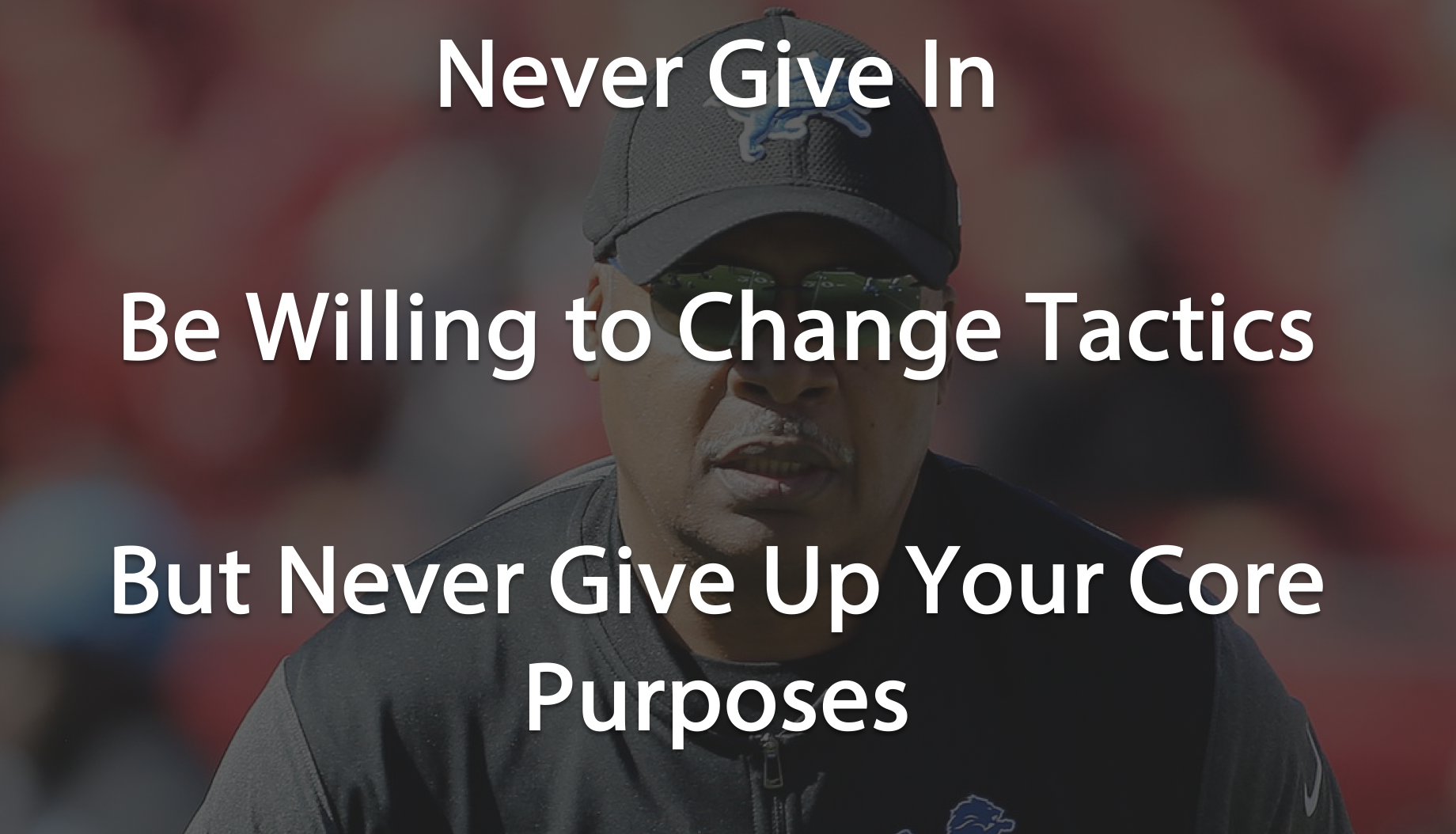Championship Teams
Through years of reading everything that I could get my hands on about leadership, a few authors stand out. One of the most dynamic is, Jim Collins. He has done exhaustive studies using comparative analyst of companies that have succeeded through the years and those that have failed. He searched for the common denominators of companies with a history of success identifying the leadership styles and cultures that fueled it. He also examined the companies that failed and why?
After we had a great season, I would often use the following presentation based on his book ‘Why the Mighty Fall’ to plot our course for the upcoming year.
“Whether you prevail or fail, endure or die, depends more on what you do to yourself than what the world does to you.”
– Jim Collins
Five Stages of Decline to Avoid!
Central Theme - matched pairs of successful companies with unsuccessful companies.
Analyzed the issues that led to the demise of once great companies.
I think we can learn something from this study.
Premise - “Decline is largely self-inflicted”
Stage 1: Hubris Born of Success
hu-bris: noun. Excessive pride or self confidence.
Success is viewed as “deserved,” rather than “earned.” Belief that success will continue almost no matter what the organization decides to do or not do. People become arrogant, regarding success as an entitlement. Lose sight of the true underlying factors that created success in the first place.
“What” Replaces “Why”
“We’re successful because we do these specific things.”
Replaces understanding and insight
“We’re successful because we understand why we do these specific things and under what conditions they would no longer work.”
Stage 2: Undisciplined Pursuit of More
Organizations stray from the disciplined creativity that led them to greatness in the first place
i.e. More plays, get fancy, drastic schematic changes
Taking action inconsistent with your core values is undisciplined.
Avoid It
“Do What We Do”
Rely on the things that we do best.
Does not mean you should not be creative, but over-reaching is counter-productive
Distinction between having the wrong people and having the right people is that the wrong people see themselves as having “jobs” while the right people see themselves having “responsibilities.”
Stage 3: Denial of Risk and Peril
Internal warning signs begin to show while external results remain strong enough to “explain away” disturbing data.
i.e. Win with negative turnover ratio.
Discounting negative data, amplify positive data, and put a positive spin on ambiguous data.
Blaming external factors
Avoid It
Facing the facts
Accept Responsibility
Unify behind a decision once its made
Conduct “autopsies without blame” gaining wisdom from painful experiences
Stage 4: Grasping for Salvation
Events take a turn for the worse. How do we respond?
Looking for a Quick Fix
Silver Bullet (Radical Transformation, Dramatic Cultural Revolution, etc.)
vs
Getting Back to the Basics that brought out greatness in the first place.
Avoid It
Get the Facts, Think, then Act.
Get back to the basics
Reaffirm your core principles
Do Less Better
Create Momentum with a series of good decisions (“Long Term Success is Nothing But a Series of Short Term Successes Strung Together”)
Stage 5: Capitulation to Irrelevance or Death
Avoid addressing the issues until it is too late
“Atrophy into insignificance”
Avoid It
Build habits of Never Giving In regardless of the circumstances
Be willing to endure pain
Never give up faith in the ability to prevail
Never give up on the principles that define our culture
Truly Great vs Successful
Leaders are those who simply refuse to give up on not only survival, but of ultimate triumph despite the most extreme odds.
The signature of the truly great versus the merely successful is not the absence of difficulty, but the ability to come back from setbacks, even cataclysmic catastrophes, stronger than before. As long as you never get entirely knocked out of the game, there always remains hope.
We Must Improve
Turnover Margin
Missed Tackles
Drops
Running the Ball
Making Big Plays
Situational Success
Foundation for Success
Preparation
Fundamentals
Techniques
Effort
Team Chemistry
Core Values
Hard Work
“Talent will prevail over hard work every time if Talent works hard.” Daniel Cole, ‘The Talent Code’
Determined to get better
A sense of urgency that never changes with success or failure
Unselfish
Team First, One Team, No Hazing
Common Goal
Team interests placed above personal interests
Poise (Play Smart)
Absolutely Nobody can Beat Us if We Don’t Beat Ourselves
Crisis = Danger / Opportunity
Former Marine: Greatest lesson learned is when you are outnumbered
Breathe. Calm yourself. Think. Focus. Aim. One Shot at a time.
When we find ourselves in trouble, when we find ourselves on the cusp of failing, our survival instinct – and our fear – can evoke lurching, reactive behavior absolutely contrary to survival. That very moment, take calm, deliberate action that brings about success.

